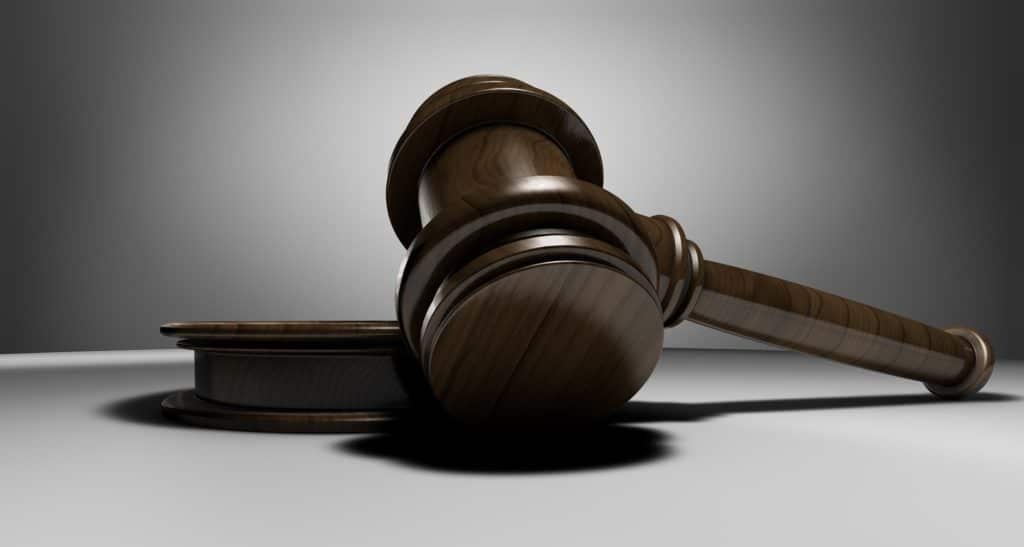The Court of Appeals recently released its opinion in United States v. Shelby. Sergeant Shelby was initially charged with several offenses in January 2022. The most serious of these charges was one alleging abusive sexual contact, a violation of Article 120, UCMJ. Before those charges were tried at court-martial, the Military Judge found that the trial counsel had made a “misleading representation” about this Article 120 offense to the Staff Judge Advocate who was advising the Convening Authority on the case. The Military Judge found this to be unlawful command influence and ordered the Article 120 charge be dismissed without prejudice, disqualified the trial counsel from participating in the entire court-martial, and disqualified the Convening Authority from taking any action on the dismissed charge.
An offense that is dismissed without prejudice can be referred once more to a court-martial, although because the Military Judge disqualified the Convening Authority from doing anything with it, the same Convening Authority could not refer it for trial again. Instead, the Convening Authority withdrew all of the other charges and specifications from the court-martial and dismissed them, also without prejudice.
In June 2023, a new Convening Authority took ownership of the charges and referred all of them, including the Article 120 offense, to a new court martial. Before this second court-martial, the defense attorney who had represented Sergeant Shelby in the abandoned January 2022 proceedings told Sergeant Shelby that he was no longer available to represent him. Sergeant Shelby asked the new Convening Authority to appoint this defense counsel to represent him anyway and the Convening Authority denied the request, finding the attorney unavailable. Sergeant Shelby’s defense raised this issue in a motion to the Military Judge. The Judge found the Convening Authority’s denial to be improper and dismissed the Article 120 offense again for cumulative error, based upon the original unlawful command influence issue and this new denial of defense counsel. This time he dismissed the offense with prejudice. A charge or specification dismissed with prejudice cannot be brought back to trial.
Cumulative error is an analysis typically used by appellate courts in reviewing the totality of a court-martial. Although no one error during the trial may be significant enough to merit reversal on its own, an appellate court may find that the combination of several smaller errors prejudiced the convicted servicemember enough to warrant reversing a guilty finding.
The Government appealed the Military Judge’s dismissal of the Article 120 offense under Article 62, UCMJ. This article allows the Government to appeal a decision before the conclusion of the court-martial in limited cases. The Government is allowed to appeal under Article 62 when a military judge dismisses an offense. The Government appealed the dismissal to the Navy-Marine Corps Court of Criminal Appeals (NMCCA). NMCCA found that the Military Judge abused his discretion and reversed his decision dismissing the offense. Sergeant Shelby’s defense then appealed the NMCCA decision to the highest military appellate court, the Court of Appeals for the Armed Forces (CAAF). CAAF determined that the doctrine of cumulative error is only applicable on appeal when a court is evaluating the entire court-martial and its results to see whether or not the errors made the court-martial unfair. Also, the Court found that the Military Judge had addressed the unlawful command influence with his ruling at the first court-martial and had ruled to require Sergeant Shelby’s defense counsel to represent him at the second. Because he had essentially remedied both of these problems with his rulings, the dismissal was unnecessary. The case will now go back to the trial level and Sergeant Shelby will face all of the offenses originally charged, including the Article 120 offense.
If you or your loved one want to appeal a court-martial, you need someone with experience who knows what arguments to make on your behalf, and when to make them. I have argued this issue, and numerous others in front of appellate courts and CAAF. I have the experience you need. Please call Bill Cassara at (706) 860-5769 for a free consultation.

